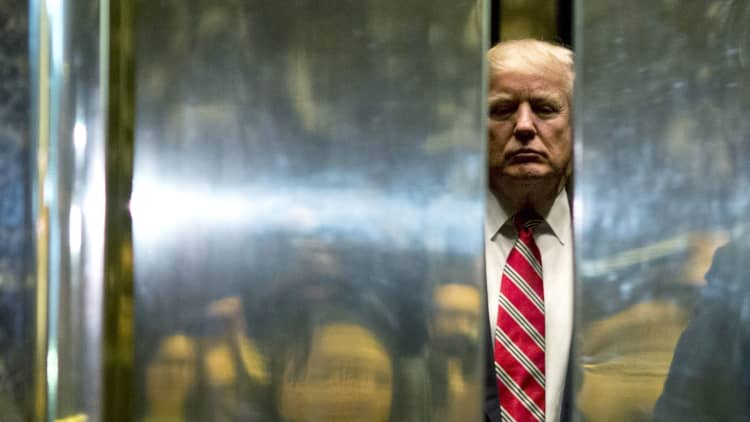Attorney General William Barr on Wednesday confirmed that his Justice Department will be reviewing the origins and the methods of investigations into then-candidate Donald Trump's 2016 presidential campaign.
Barr has come under fire by Democrats for his handling of the yet-to-be-released, 400-page final report from special counsel Robert Mueller's investigation of Russian election interference. He told lawmakers that he believes U.S. government agencies spied on the Trump campaign.
"I think spying on a political campaign is a big deal," Barr said in testimony during a Senate Appropriations subcommittee's hearing on the Trump administration's fiscal 2020 budget proposal.
"I'm not suggesting that those rules were violated, but I think it's important to look at that. And I'm not talking about the FBI, necessarily, but intelligence agencies more broadly," Barr said.

Many Republicans on Capitol Hill, especially those closely allied with Trump, have called for an investigation into the beginnings of the government's Russia probes throughout Mueller's 22-month probe into Kremlin interference in the 2016 election, potential Russian collusion with Trump's campaign and possible obstruction of justice by Trump.
Their calls have grown louder in the wake of Barr's summary of the principal conclusions from Mueller's yet-to-be-released report, in which Barr and Deputy Attorney General Rod Rosenstein concluded that the special counsel did not find sufficient evidence to merit an obstruction charge.
Bar told a House subcommittee Tuesday that he expected that a version of the Mueller report — with redactions — would be out "within a week." On Wednesday, however, Barr told the Senate panel that "the report's gonna be out next week."
Barr acknowledged that much investigation on this topic has already taken place, and that the Justice Department's Office of Inspector General is still investigating the matter. He explained that his probe would take a holistic look at the investigations, both from government agencies and congressional committees.
"One of the things I want to do is pull together all the information from the various investigations that have gone on, including on the Hill and in the department, and see if there are any remaining questions to be addressed," Barr said.
Sen. Jeanne Shaheen, D-N.H., the subcommittee's ranking member, asked Barr to explain why he was taking this action.
"I think spying on a political campaign is a big deal. It's a big deal," he said, adding that the Vietnam War generation in which he grew up was very concerned about spying on antiwar Americans by the government.
Shaheen asked Barr to clarify that "you're not suggesting, though, that spying occurred" within the Trump campaign.
Barr responded: "I think spying did occur."
The most important question, he added, is "whether it was ... adequately predicated. I'm not saying it wasn't adequately predicated, but I need to explore that."
Trump, speaking to reporters Wednesday morning before Barr's testimony began, blasted Mueller's probe, referring to it as an "attempted takedown of a president."
"What they did was treason," Trump added.
Barr swapped out the term "spying" for "unauthorized surveillance" when Sen. Brian Schatz, D-Hawaii, asked the attorney general if he wanted to use more precise language.
"I think the word 'spying' could cause everybody in the cable news ecosystem to freak out," Schatz said.
Other Democratic lawmakers offered more direct criticism of Barr's testimony.
"The top law enforcement officer of the country should not casually suggest that those under his purview engaged in 'spying' on a political campaign," House Intelligence Committee Chairman Adam Schiff, D-Calif., said in a statement.
"This type of partisan talking point may please Donald Trump, who rails against a 'deep state coup,' but it also strikes another destructive blow to our democratic institutions," Schiff added. "The hardworking men and women at the DOJ and FBI deserve better."
Sen. Mark Warner, D-Va., called Barr's language "irresponsible" in a tweet.
At the tail end of the hearing, Barr clarified: "I am not saying that improper surveillance occurred. I'm saying that I am concerned about it and looking into it. That's all."


